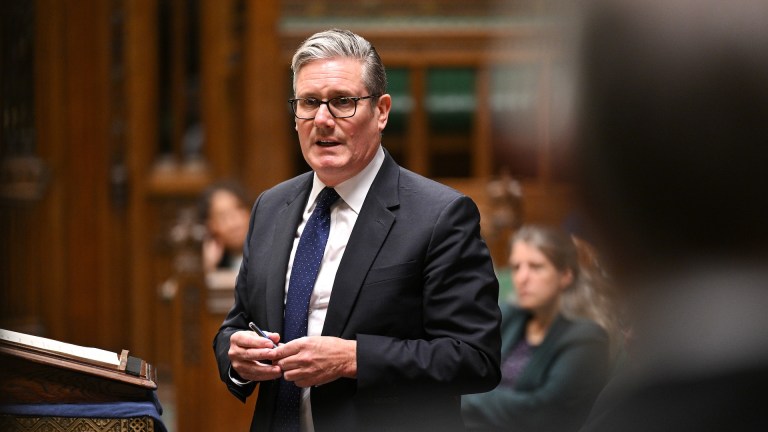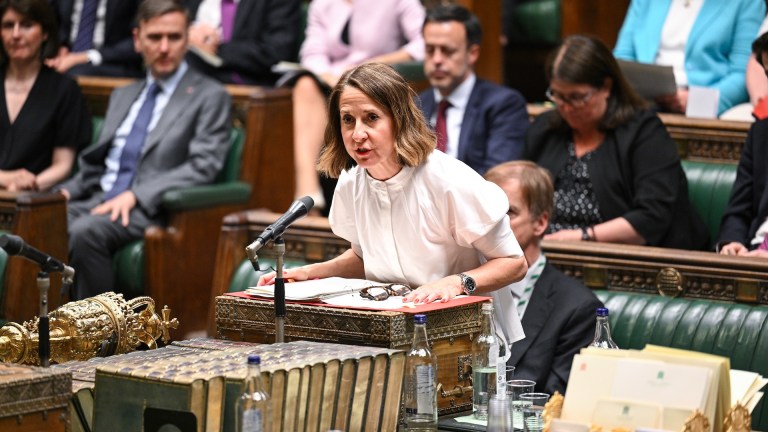“With real wages up again and millions benefiting from this month’s huge boost to national living wage, it is work, not welfare, that delivers the best financial security for British households.”
The limited capability for work-related activity (LCWRA) element in universal credit is set to be reformed. Instead of financial support, hundreds of thousands of people currently considered too ill to work will be offered “personalised support to help them move closer towards work”.
As the Big Issue has previously reported, around 230,000 people with mobility problems preventing them from working will be denied extra universal credit by 2029, according to figures from the Office for Budget Responsibility (OBR) requested by anti-poverty charity Z2K.
A further 141,000 people with mental health conditions will miss out by 2029.
Ayla Ozmen, director of policy and campaigns at Z2K, said: “Rising levels of long-term sickness show exactly that – more people are too unwell to work. But DWP’s current plans ignore this.
“From next year, they want to deny vital extra universal credit to over 370,000 people with serious mobility and mental health difficulties, and put them at risk of being sanctioned.
Advertising helps fund Big Issue’s mission to end poverty
“Ill-health needs tackling through the health service, not through tightening the already harsh benefits system, which only drives people deeper into poverty and further from work. These dangerous proposals need to be scrapped.”
Researchers at the Resolution Foundation have pointed out that the universal credit system was designed to “make work pay”. Around 2.7 million universal credit claimants are subject to some form of conditionality, compared to 1.1 million when the legacy benefits system was in place in 2013-2014.
Britain faces different labour market challenges today than a decade ago. The unemployment rate has fallen from 8.5% in 2011 to 4.2% in December 2023 to February 2024, but the number of benefit claimants who are out of work due to ill-health has surged.
Charlie McCurdy, economist at the Resolution Foundation, said: “Britain post-pandemic jobs recovery has fallen further off course, with falling employment adding to the longer-term rise in economic inactivity.
“Rising redundancies and falling job levels are signs of a stagnant economy, while rising inactivity and long-term sickness suggest there are wider issues with the health of our workforce.
“Tackling rising inactivity – and its impact on the public finances, the benefits system, and people’s wider health and wellbeing – is one of the biggest economic challenges facing both this government, and whoever wins the next election.”
Advertising helps fund Big Issue’s mission to end poverty
Experts point out that an inadequate welfare system and poor pay are key drivers for long-term sickness and mental health struggles. A punitive benefits system characterised by sanctions and cuts is likely to have the adverse affect of pushing people further away from work and into deeper poverty.
Another key reason for record levels of long-term sickness is chronic underfunding of NHS services which has led to long waiting lists and high demand on overburdened staff in the aftermath of the cost of living crisis.
Tom Pollard, head of social policy: “Today’s stats once again show the dire consequences of underfunding our public services and pushing people into low-paid and insecure work. Poverty and an inadequate income safety net, together with poor quality jobs, housing and public services, are driving up demand on a struggling NHS by undermining people’s health and ability to work.
“Every one of us needs a strong foundation of income and health to get by. The only way to guarantee that is a stronger social security system, ensuring everyone has a warm home and better public services that always provide personalised support.”
In the aftermath of the cost of living crisis, as prices continue to rise and people face record levels of debt, work is not always a viable solution to poverty. One in five people referred to a food bank in the Trussell Trust network are from working households, according to the charity.
The new ONS data shows that annual earnings growth, excluding bonuses, was 6% in the three months to February compared with a year earlier. After taking inflation into account, real pay growth was 2.4%, the highest since July 2021.
Advertising helps fund Big Issue’s mission to end poverty
However, as the Joseph Rowntree Foundation has pointed out, post-tax earnings for the average family remain on course to be £380 per year lower at the beginning of 2025 compared with the start of 2021 – and this gap is not expected to close until 2029.
Alfie Stirling, director and chief economist at the Joseph Rowntree Foundation said: “Work is increasingly failing to provide a reliable route out of poverty. There is no quick fix: a proper strategy for jobs and pay requires a stronger social settlement.
“Whether it’s addressing elevated NHS waiting times, a lack of affordable housing and childcare, or perverse cultures of employment support in our job centres, lasting repair to the labour market will rest on our ability to restore wider resilience across welfare and public services.”
Do you have a story to tell or opinions to share about this? We want to hear from you. Get in touch and tell us more.










